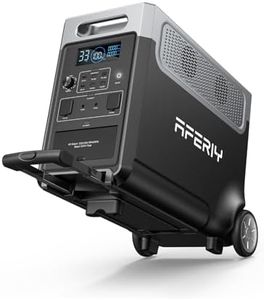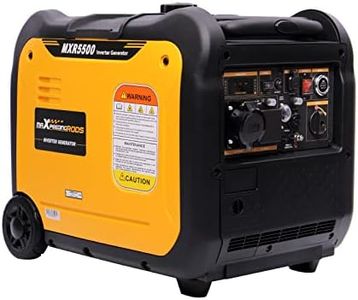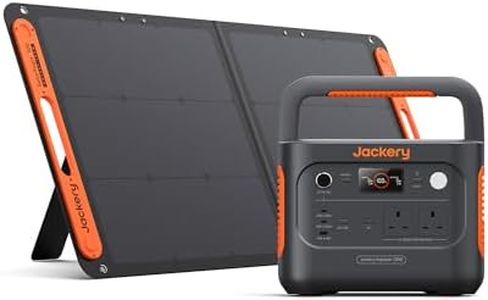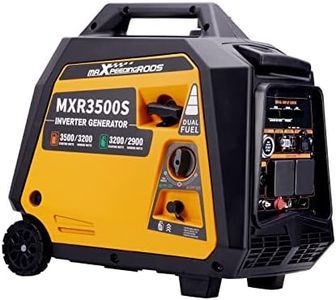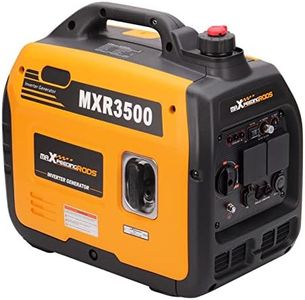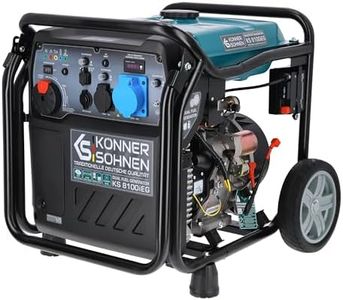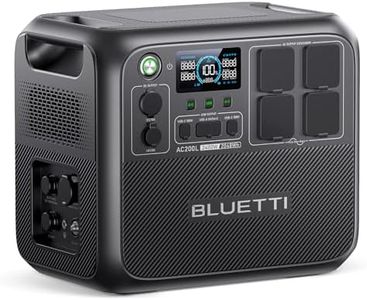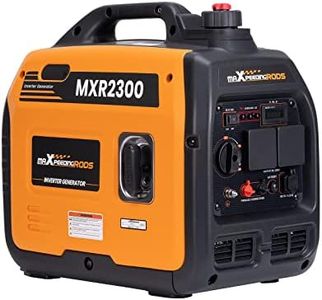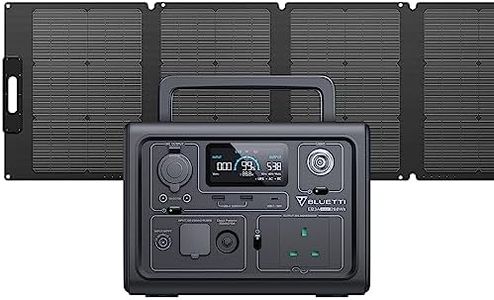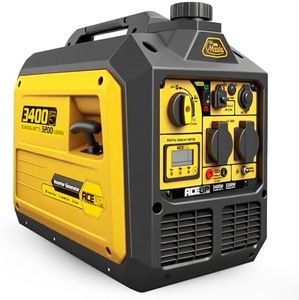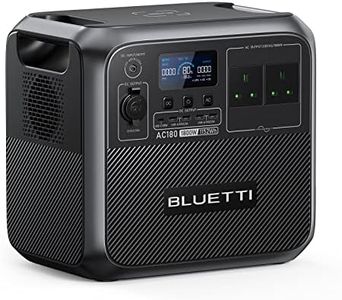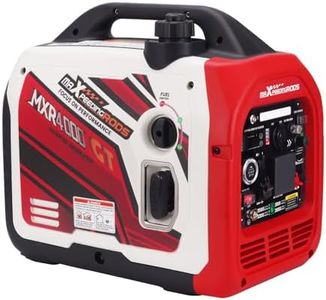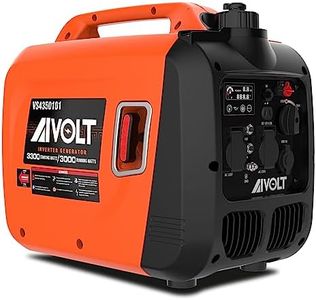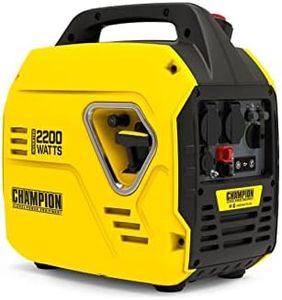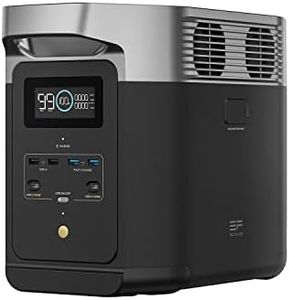We Use CookiesWe use cookies to enhance the security, performance,
functionality and for analytical and promotional activities. By continuing to browse this site you
are agreeing to our privacy policy
10 Best Generators
From leading brands and best sellers available on the web.Buying Guide for the Best Generators
When choosing a generator, it's important to consider your specific power needs and the environment in which you'll be using it. Generators come in various sizes and types, each suited for different applications, from home backup during power outages to powering tools on a job site or providing electricity for outdoor events. Understanding the key specifications will help you select a generator that meets your requirements efficiently and safely.Power Output (Wattage)Power output, measured in watts, indicates how much electricity a generator can produce. This is crucial because it determines what appliances or devices you can run simultaneously. Generators are typically categorized into three segments: small (up to 2000 watts), medium (2000-7000 watts), and large (over 7000 watts). Small generators are suitable for camping or running a few small appliances, medium ones can power essential home appliances during an outage, and large generators can run multiple large appliances or even an entire home. To choose the right one, list the devices you need to power and their wattage requirements, then select a generator that can handle the total wattage.
Fuel TypeGenerators can run on various fuel types, including gasoline, diesel, propane, and natural gas. The fuel type affects the generator's efficiency, cost of operation, and convenience. Gasoline generators are common and easy to refuel but may not be as efficient for long-term use. Diesel generators are more fuel-efficient and durable but can be noisier. Propane generators offer cleaner emissions and longer shelf life for the fuel, while natural gas generators are convenient for homes with a natural gas line. Consider the availability and cost of fuel in your area, as well as your environmental preferences, when choosing a fuel type.
PortabilityPortability refers to how easy it is to move the generator. This is important if you plan to use the generator in different locations or need to store it when not in use. Portable generators are typically smaller and have wheels and handles for easy transport, making them ideal for outdoor activities or job sites. Stationary generators, on the other hand, are larger and designed to be installed permanently, often for home backup power. If you need a generator that can be easily moved, look for one with a compact design and built-in mobility features.
Noise LevelThe noise level of a generator, measured in decibels (dB), is an important consideration, especially if you plan to use it in residential areas or during quiet times. Generators can be quite loud, which can be disruptive. Noise levels can range from around 50 dB (similar to a quiet conversation) to over 80 dB (similar to a lawnmower). Inverter generators are generally quieter and are a good choice for noise-sensitive environments. Consider where and when you'll be using the generator and choose one with a noise level that won't disturb you or your neighbors.
Run TimeRun time indicates how long a generator can operate on a full tank of fuel. This is important for planning how often you'll need to refuel, especially during extended power outages or long events. Run time can vary significantly based on the generator's size and load. Some generators can run for as little as 4 hours, while others can operate for over 12 hours on a single tank. To choose the right run time, consider how long you need the generator to run without interruption and how convenient it is for you to refuel it.
Start TypeThe start type of a generator refers to how it is turned on. There are typically three types: manual recoil start, electric start, and remote start. Manual recoil start requires pulling a cord, similar to starting a lawnmower, and is common in smaller, portable generators. Electric start uses a push-button or key start, which is more convenient and found in larger models. Remote start allows you to start the generator from a distance, adding convenience. Consider your physical ability and preference for convenience when choosing the start type.
